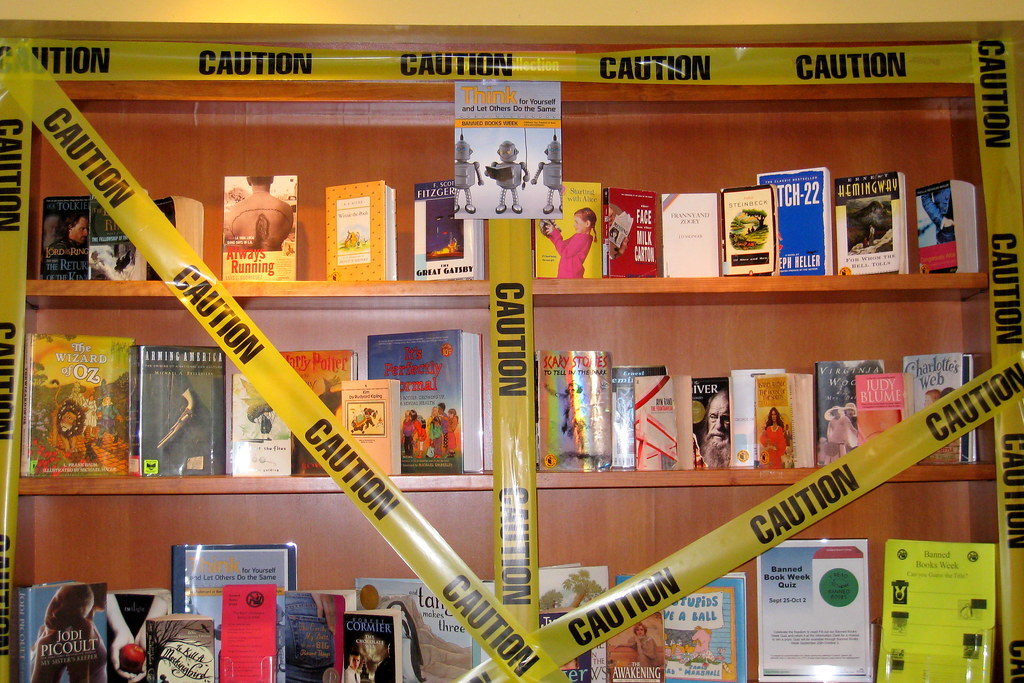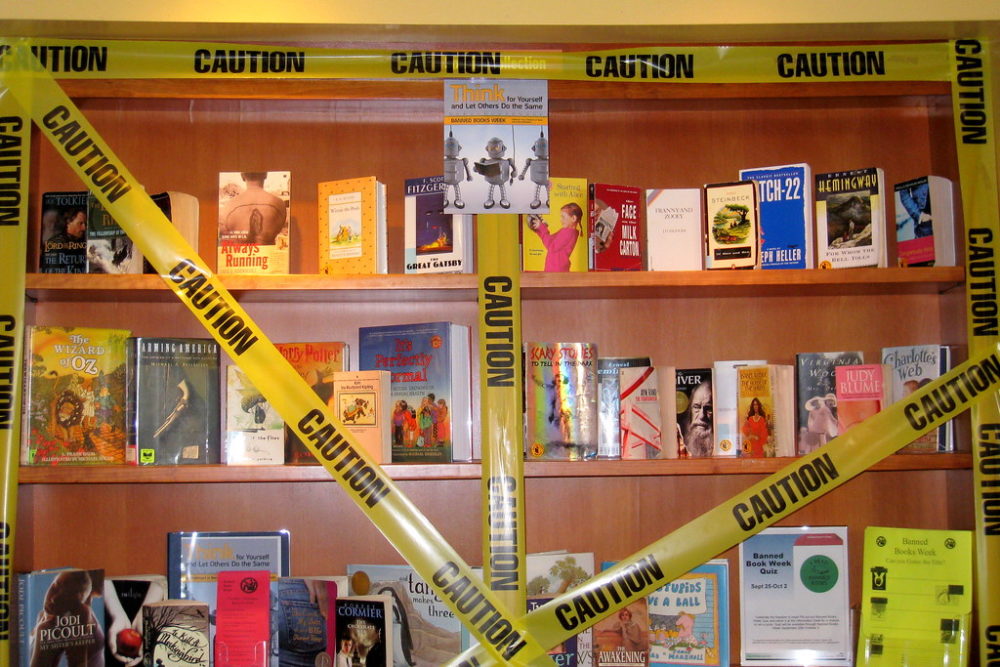North Dakota State University libraries hosted an event focusing on banned books

Every year, a report shows the top ten banned books.
The North Dakota State Library is bringing attention to the fact that “censorship happens in many different forms,” according to NDSU’s Humanities Librarian, Maddison Melquist.
Melquist has been the Humanities Librarian since January of 2019 but has been working at the NDSU library since November of 2015.
Melquist first described her roles and responsibilities as Humanities Librarian. “I primarily work with our resources for our English, History, Philosophy and Religious Studies, Modern Languages, Music and Theatre, faculty, staff and students. I am responsible for developing related collections, which means I need to be aware that I am presenting all viewpoints if those resources exist.”
“Book banning refers to a book that is outright excluded from a location or curriculum based on a complaint against its content,” Melquist described.
“Anyone is able to challenge a book’s content, but only official decisions to exclude material by the governing bodies mentioned constitute a ‘ban’,” Melquist said.
“Censorship, such as banning books, hurts academic progress by removing information from the dialogue.”
Maddison Melquist, NDSU Humanities Librarian
“Many of the books high school students read have been challenged or banned, To Kill a Mockingbird; violence and racial slurs, Animal Farm; Communist text and Catcher in the Rye; offensive language and sexually explicit scenes,” Melquist said.
“There are also some that might surprise you. Captain Underpants has been challenged for “encouraging disruptive behavior,” Harry Potter for “Satanism,” The Bible for “religious viewpoint” and Twilight was challenged for ‘bad writing,” Melquist added.
When asked about her personal feelings towards the censorship of literature in certain settings, Melquist answered, “Often banning books stems from a good place. The desire to protect people from content one deems harmful.”
“I personally think uncomfortable content presents an opportunity to learn and grow. It will likely lead to difficult conversations, but those experiences are invaluable and teach people to scrutinize the information they are given and think more carefully about their own words and actions.”
Every year, the American Library Association releases a report of challenged and banned books. The list typically includes the top ten banned books of that year.
“The numbers fluctuate, but the practice has never disappeared,” Melquist said on whether she thinks book banning will continue in the future.
“NDSU Libraries’ mission is to energize and advance research, teaching and learning in an evolving information environment. We provide access to as many academic resources as we can so our users are able to move forward in their research,” Melquist stated when explaining why the event is important for the students at NDSU.
“Censorship, such as banning books, hurts academic progress by removing information from the dialogue,” Melquist said. “Everyone should be able to decide whether or not to engage in potentially controversial content and to be part of the conversation surrounding it.”
Melquist also described what NDSU students and staff should know about this event. “Banned Books Week is just one way we promote the idea of intellectual freedom that stems beyond academia.”
“The ALA guides library efforts through the “Library Bill of Rights.” Some highlights include: all viewpoints should be represented to the best of our ability, libraries should challenge censorship to provide information and patrons have the right to privacy,” Melquist mentioned.
“We’re here to help our users learn how to be critical of the information they are presented with so they can decide what to do with it.”
More information about the Banned Books Week that was held at NDSU libraries can be found on their website or at the libraries themselves.
